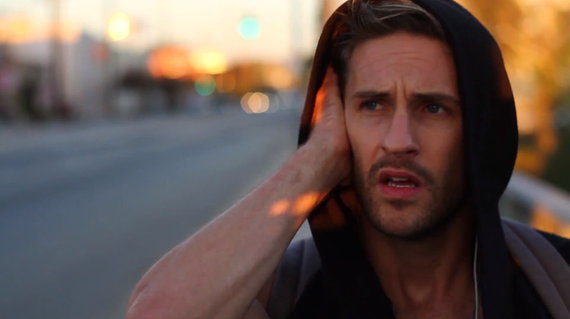Myths About Transition Regrets
Every few months I find myself reading something written by a person with no actual psychological, psychiatric, or medical training expounding on why they believe transgender people aren’t real, shouldn’t be allowed to transition, or just need some old-school “reparative therapy” complete with screaming, pillow whacking and cuddling with a “therapist.”
Recently there has been a spate of blog posts raising the specter of transgender people regretting transitioning. They cite their two favorite studies, without actually looking at what the actual studies said, and drag out some old anecdotes. In short, they try to muddy the waters the way climate-change deniers or creationists do by throwing up a cloud of chaff and hoping no one will look any closer. And then there’s the fact that the authors of these blog posts also think that same-sex marriage will abolish all marriage.
Let’s deconstruct the arguments being trotted out one by one.
1. A Swedish study shows post-operative people are more much more likely to commit suicide.
This statement grossly misrepresents the findings of the study and suggests that the study argues against transition-related care. Quite the opposite. The study outright states that medical transition is supported by the other research, and the study is not intended as an argument against the availability of such treatment:
For the purpose of evaluating whether sex reassignment is an effective treatment for gender dysphoria, it is reasonable to compare reported gender dysphoria pre and post treatment. Such studies have been conducted either prospectively or retrospectively, and suggest that sex reassignment of transsexual persons improves quality of life and gender dysphoria.
Indeed, another Swedish study in 2009 found that 95 percent of individuals who transitioned report positive life outcomes as a result.
Additionally, the higher mortality rates are in comparison with the general populace (and not other transgender people who have not received treatment) and only apply to people who transitioned before 1989:
In accordance, the overall mortality rate was only significantly increased for the group operated on before 1989. However, the latter might also be explained by improved health care for transsexual persons during 1990s, along with altered societal attitudes towards persons with different gender expressions.
It should come as no shock that as society accepts transgender people, they suffer fewer side effects of minority stress. This conclusion is supported by other recent studies (Murad 2010 and Ainsworth 2011) that found that individuals who receive treatment not only are better-off than those who didn’t but are not significantly different in daily functioning than the general population:
Male-to-female and FM individuals had the same psychological functioning level as measured by the Symptom Checklist inventory (SCL-90), which was also similar to the psychological functioning level of the normal population and better than that of untreated individuals with GID….
The mental health quality of life of trans women without surgical intervention was significantly lower compared to the general population, while those transwomen who received FFS, GRS, or both had mental health quality of life scores not significantly different from the general female population.
2. But there’s the 2004 British study that says gender-confirmation surgery (GCS) isn’t effective.
This statement is another gross representation of the research. The study in question was an update of a 1997 study and concluded that between 1998 and 2004, only two studes on the effectiveness of GCS had partially met the criteria of being peer-reviewed and having both a control group and a dropout rate of less than 50 percent. Of those two studies, both showed that patients benefited from the treatment. But the small sample size of the studies prohibited the update from drawing any conclusions on the effectiveness of GCS.
The problem is that meeting the requirement of double-blind studies with control groups using transgender individuals is both impractical and ethically unacceptable, as summarized here:
One problem with medical treatment (and obviously surgery) for transsexuals is that blinding of studies is not possible. It is immediately obvious whether a participant received treatment or not, substitution by placebo will not work for obvious reasons. Clearly, all sex reassignment studies thus fail the gold standard. The next issue is including a control group into the study. This would require to properly diagnose transsexuals, making sure they meet the requirements and indications for sex reassignment surgery, and then to randomly split the participants into two groups — one receiving surgery and one not. Clearly, both groups have to be large for the result to be statistically valid. Then you could measure quality of life of the participants and compare the groups at intervals of several years. That’s the theory, anyway.
In reality, you would find the pressure transsexuals find themselves under grow so much that a large part of the untreated group commits suicide (Haas, Rodgers, Herman 2014) or seeks treatment illegally or abroad. This makes such a study highly unethical, it would never get the okay from an approvals body! You simply cannot withhold treatment from a highly stigmatised group that has a prevalence of 42 to 46 % suicide attempts, compared with 4.6 % in the general population.
But this does not mean there hasn’t been research: Seventy-one peer reviewed articles showing the effectiveness of transition-related medical care can be found here. And in 2014 another study, by Dr. Cecilia Dhejne, the lead author of the first Swedish study described above, addressed the dropout-rate issue in a study of all Swedish applicants for GCS between 1970 and 2010. She found a 2.2-percent regret rate for both sexes, and a significant decline in regrets over the time period.
3. Regret is common.
Surgical regret is actually very uncommon. Virtually every modern study puts it below 4 percent, and most estimate it to be between 1 and 2 percent (Cohen-Kettenis & Pfafflin 2003, Kuiper & Cohen-Kettenis 1998, Pfafflin & Junge 1998, Smith 2005, Dhejne 2014). In some other recent longitudinal studies, none of the subjects expressed regret over medically transitioning (Krege et al. 2001, De Cuypere et al. 2006).
These findings make sense given the consistent findings that access to medical care improves quality of life along many axes, including sexual functioning, self-esteem, body image, socioeconomic adjustment, family life, relationships, psychological status and general life satisfaction. This is supported by the numerous studies (Murad 2010, De Cuypere 2006, Kuiper 1988, Gorton 2011, Clements-Nolle 2006) that also consistently show that access to GCS reduces suicidality by a factor of three to six (between 67 percent and 84 percent).
4. But what about the people who had regrets?
Any surgery comes with a risk of regret. It just happens that the risk of regret for GCS is actually much lower than for many other surgeries. Indeed, the regret rate for GCS compares favorably with gastric banding.
When asked about regrets, only 2 percent of respondents in a survey of transgender people in the UK had major regrets regarding the physical changes they had made, compared with 65 percent of non-transgender people in the UK who have had plastic surgery.
Risk factors for negative outcomes often mentioned in studies are lack of support from the patient’s family, poor social support, late-life transitions, severe psychopathology, unfavorable physical appearance, and poor surgical result (Cohen-Kettenis 2003, Lawrence 2003, Landen 1998, Smith 2005). Lawrence (2003) concluded that results of surgery may be more important for global outcome than preoperative factors. As techniques have been perfected, the risk of long-term complications has fallen to less than 1 percent in male-to-female patients (Perovic 2000, Jarolím 2009, Wu 2009). This follows the pattern of regret rates falling as well.
People who regret physically transitioning are outliers, not the norm.
5. The transgender community is intolerant of people who regret surgery.
No, we just really don’t like it when people try to get between us and our doctors.
Given the level of harm involved when medical care is denied, and given how unusual regret is, denying medical care to everyone based on the outliers makes no logical or ethical sense. In other words, you would do more harm to more people by denying everyone access than by keeping the system we have in place or even expanding access. Every major medical organization supports access to transition-related care and deems it medically necessary for a reason: The actual peer-reviewed evidence supports it.
The standards set in place by the World Professional Organization of Transgender Health Professionals, Standards of Care (SOC) v7, are designed to ensure that regret rates are kept low. Many of the anecdotal cases of regret would have been avoided if the SOC had been followed.
The push shouldn’t be for less access to care but for providers of care who are better-educated.
www.huffingtonpost.com/brynn-tannehill/myths-about-transition-regrets_b_6160626.html?utm_hp_ref=gay-voices&ir=Gay+Voices





